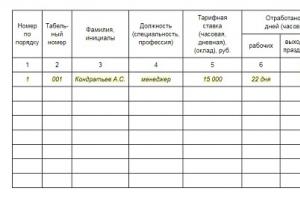This condition requires immediate treatment, as it can lead to various complications. Improper functioning of the heart leads to chronic pathologies. How to avoid serious consequences, we will consider further.
First aid for high blood pressure
In case of high blood pressure, first aid must be provided:
- Calm the patient and call an ambulance.
- Help the patient reduce anxiety, as it arises due to stress arterial hypertension.
- You should not give anything to eat or drink.
- If the patient has convulsions, it is necessary to turn him on the side to prevent aspiration.
- If the patient complains of difficulty breathing, then you need to put pillows behind his back.
Signs low pressure and high heart rate:
1. Dizziness.
2. Severe headache.
3. Difficulty breathing.
4. Tinnitus.
5. Nausea and vomiting.
6. Severe chest pain.
7. Limb spasms.
8. Loss of consciousness.
For high blood pressure, first aid - tablets and medications
Ambulance for high blood pressure at home - tablets:
- Captopril. When taken orally, the drug should be taken with plenty of water. For high blood pressure, the tablets should be placed under the tongue. The medicine will begin to act within 15 minutes.
- Anaprilin. The medicine is effective in the initial stages of hypertension. The daily dosage of the drug should not exceed 320 mg. (You can find out more about the drug Anaprilin)
- Nitroglycerine. Has almost no side effects.
- Nifedipine. The daily dosage of the drug should not exceed 120 mg. The course of treatment should be no more than two months. The drug is contraindicated for children under 18 years of age, pregnant women and breastfeeding women.
- Corinfar. Available in the form of tablets, solution and drops for oral administration.
- Kapoten. The tablets should be taken with caution in elderly patients. The medicine helps with high blood pressure, myocardial infarction, chronic heart failure, as well as diabetic nephropathy and diabetes mellitus.
Before taking any medicines Be sure to consult your doctor. Self-medication can lead to undesirable consequences.
What injections should I take?
The injections are effective within 30 minutes.
Disadvantages of injections:
- Patients experience a large number of side effects.
- Frequent use of injections can negatively affect the kidneys and liver.
- If you administer the medicine unsafely, you may get an infection or get injured.
- Diuretics. The drug is able to remove excess fluid in the urine, which helps lower blood pressure.
- ACE inhibitors. The drug effectively blocks the factor that is responsible for increasing blood pressure. Injections can be used for older people.
- Peripheral vasodilators. The drug reduces tension in vascular smooth muscles.
Injections do not work as quickly as tablets. Decline blood pressure occurs within 6 hours. Most often, this method is used to provide medical care patients in serious condition.
First aid at home - methods and recipes
If the patient has then to achieve a normal state you can use the following methods and recipes:
- Rose hip decoction. The fruits of this plant normalize arterial hypertension. You need to drink the decoction three times a day, one glass before meals.
- Motherwort tincture. Motherwort has a calming effect and effectively reduces heart rate. The medicine should be taken one tablespoon 2-3 times a day.
- Breathing exercises. You need to take a deep breath and then hold your breath for a while. This method is used to reduce heart rate.
Improve your condition at home:
- Flax seeds
They are rich in omega-3 acids. which help strengthen the walls of blood vessels. You need to take 2-3 tablespoons of crushed seeds per day.
- Garlic
The active ingredient (allicin) found in garlic effectively reduces blood pressure.
Ingredients:
1 green apple
2 medium carrots
1 small lemon
1 ginger root (2-3 cm in size)
Mix all ingredients using a blender and add water. Drink the resulting drink throughout the day.
At what pressure should you call an ambulance?
To avoid increased blood pressure during pregnancy, you must follow the following recommendations:
- Watch your weight and eat right.
- Avoid stressful situations and get proper rest.
- Avoid sleep deprivation.
- Take walks in the fresh air.
During pregnancy, an ambulance should be called if the readings are above 150-160/100. In this case, trying to normalize arterial hypertension on your own is extremely dangerous.
This may lead to loss of consciousness or worsen the patient's condition.
For ordinary patients, it is necessary to call an ambulance if the tonometer readings are above 170/100 and no medications help.
Many people suffering from arterial hypertension often experience sudden headaches localized in the temple area. At the same time, the person’s general well-being worsens, nausea occurs, and the vision becomes dark. All this can be attributed to the alarming “bells” of a hypertensive crisis. This condition often causes disability or even death, which is why you should call an ambulance not based on the numerical values of blood pressure on the tonometer, but by assessing the general condition of the patient.
When should you call 103?
The decision to call an ambulance must be made based on the patient’s general well-being. If a person complains of tinnitus, decreased visual acuity, or trembling throughout the body, it is necessary to call emergency assistance. Perhaps the patient is hypotensive, and such an increase in blood pressure is critical for him.
Cardiologists say that a hypertensive crisis (this is the most dangerous condition when blood pressure rises) can occur when pressure rises to values of 140/90, although some hypertensive patients do not feel any unpleasant symptoms. Self-medication in such cases can provoke irreversible consequences. And if measures are not taken in time, such a patient will most likely die.
- if a person complains about headache, he has tinnitus, his pulse quickens;
- a veil appears before the eyes, visual acuity decreases;
- weakness occurs in the limbs;
- the patient has speech impairment;
- limbs go numb;
- the patient has difficulty breathing, he lacks air.
In case of such manifestations, the patient needs to be kept at rest, prohibited from moving and call an ambulance. First aid may not be enough, and in some cases hospitalization is required. This happens if:
- A jump in blood pressure occurred for the first time in a person.
- The attack is accompanied by pain in the chest and difficulty breathing.
- The pain does not go away within 20 minutes of taking the medication.
- There is a disturbance of consciousness.
- The person has difficulty speaking.
- Blood pressure does not decrease, symptoms persist.
If the increase in pressure occurs for the first time, the patient requires hospitalization. Based on the test results, the cause that provoked the jump in blood pressure will be determined, and comprehensive treatment will be prescribed. It should be remembered that arterial hypertension does not disappear without a trace, so you should not ignore the symptoms described above.
- Doctors believe that increasing blood pressure to a level from 110 to 139 by 70-89 does not have critical consequences, so there is no need to take special measures. It is enough to calm down, lie down, and rest for a while. After rest, the body systems stabilize, and the pressure returns to normal.
- If the tonometer readings are at higher limits, namely above 140/90, then we should talk about hypertension (increase) and begin lowering procedures. At home, this can be done by eliminating external irritants - bright light, loud noise, strong aromas and any other factor that has a negative impact on you. Mustard plasters on the back of the head and calves, and a mustard foot bath can have a beneficial effect on the reduction.
- Dangerous indicators are considered numbers over 160/95. In this case, call an ambulance and take antihypertensive drugs, including corinfarum under the tongue, for pain in the heart, glycerin under the tongue, for severe anxiety - soothing drops.
It is important to remember that there are no specific recommendations on what pressure to call an ambulance. It all depends on the patient’s well-being. If he feels unwell, an ambulance is called immediately. Because hypertension is the cause of hypertensive crisis and stroke.
High blood pressure can cause death and have tragic consequences for human health. Everyone needs to keep this in mind and know at what pressure to call an ambulance, and what warning signs indicate hemorrhage.
Symptoms of hypertensive crisis
Warning signs of a crisis in which an ambulance is called are:
- headache, tinnitus, shortness of breath, rapid pulse;
- decreased visual acuity, blurred vision and goosebumps;
- trembling and goosebumps all over the body, arms, legs;
- numbness of the muscles of the face, tongue, limbs, lethargy, speech impairment;
- wheezing, dry mouth.
With such symptoms, the patient should be prohibited from moving, provided with bed rest, a calm environment, and called the emergency room.
How to behave after the crisis is over
After the attack of hypertension is relieved, the patient should lie down for another two to three hours. You should check the readings with a tonometer every 15 minutes. With another attack of hypertension, an ambulance is called again. In the future, you need to monitor your condition regularly. It is necessary to exclude all causes of stress, not to overload yourself with excessive physical labor, and always have effective antihypertensive drugs at home.








